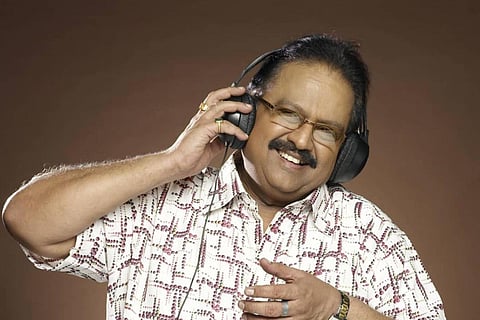A film like Sigaram, complex at many levels, intense and layered, demands equally complex, layered, intense music. There are many stories happening in the film. Music director Damodhar’s (SPB) near-perfect relationship with his wife Sukanya runs in contrasting parallel to his son Krishna’s (played by Anandh Babu) failed love affair with Aparna (Ramya Krishnan) who does not believe in the concept of marriage. Damodhar and Sukanya’s life comes crashing down when Krishna turns an alcoholic. After Sukanya dies in a freak accident leading to Damodhar turning paralytic, Dr Priya (played by Radha), his former lover enters. Interestingly, she is brought in by Gnanam (Nizhalgal Ravi), another music director who is extremely jealous of and is often conflicted by his own emotions towards Damodhar.

